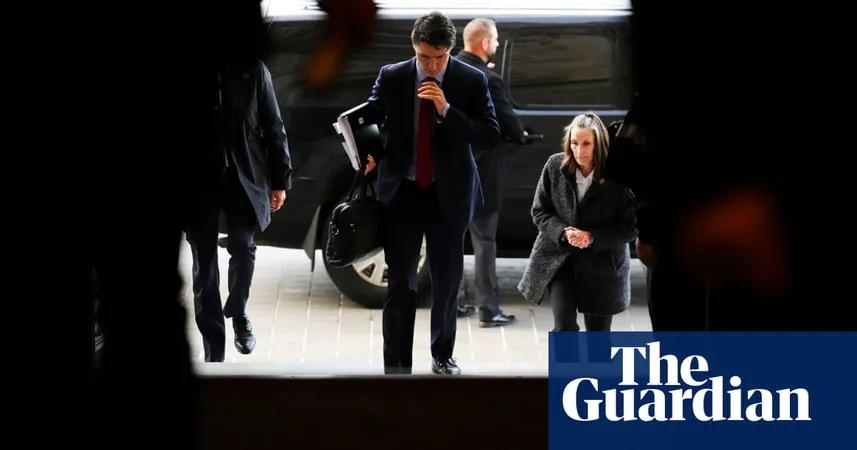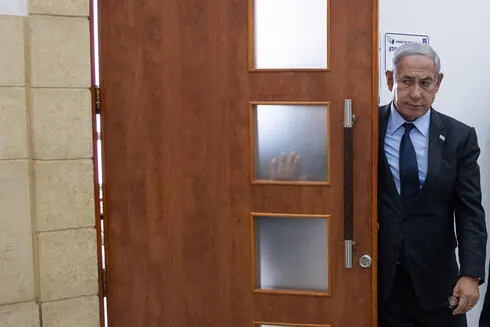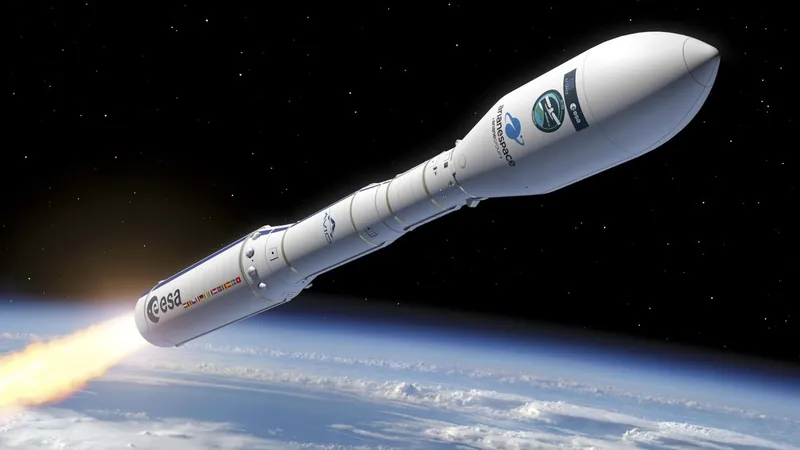
Trudeau Rallies Rivals in Strategic Bid to Combat Trump’s Tariff Threat
2024-12-03
Author: Emily
Trudeau's Strategic Meeting
In a proactive move to safeguard Canada's economy, Prime Minister Justin Trudeau has convened a rare meeting with his political adversaries to discuss strategies in response to looming tariffs proposed by President-elect Donald Trump. The meeting, held in Ottawa, brought together Trudeau, Jagmeet Singh of the New Democratic Party, and Conservative leader Pierre Poilievre. This collaboration reflects the urgency felt across the political spectrum regarding the possible economic consequences tied to Trump’s protectionist rhetoric.
Trump's Tariff Threats
Trump's recent threats to impose a 25% tariff on all goods and services from Canada and Mexico sent shockwaves through the Canadian political landscape. In a social media post, he stated these levies would remain until he perceives a decrease in the influx of drugs and illegal immigration from both countries, dubbing it an "invasion" of the U.S. This stance poses a significant risk to Canada, where approximately 75% of exports are directed to the American market.
Regional Economic Dependencies
Regional economic dependencies illustrate the potential impact of these tariffs. For instance, Alberta relies heavily on U.S. exports, sending nearly 90% of its goods across the border, predominantly oil. Conversely, the Atlantic provinces have a much lower dependency, with exports to the U.S. making up only about 20% of their total trade.
Ontario's Trade Relationship
Ontario, a pivotal province, has a strong connection with the U.S., with its trade relationship valued at nearly C$500 billion annually. Premier Doug Ford has leaped into action, launching a campaign to highlight this bond, even airing a commercial on U.S. networks like Fox News. He emphasized the detrimental effects a trade war would inflict not just on Canada but on American workers reliant on the lucrative Ontario market.
Diverse Provincial Responses
However, responses from provincial leaders vary. British Columbia's Premier David Eby is looking toward diversifying export markets, as only about half of his province’s exports go to the U.S. Eby expressed a commitment to expanding trade opportunities, especially with overseas markets, indicating a strategic pivot in light of potential tariffs.
Negotiations at Mar-a-Lago
The stakes have never been higher. As tensions rise, Trudeau's urgent negotiation with Trump at the Mar-a-Lago resort, where Trudeau became the first G7 leader to meet the president-elect, reflects the gravity of the situation. Although described as a "very productive meeting" by Trump, Trudeau left without concrete assurances, urging the need for a unified Canadian front in lobbying for their interests in Washington.
Challenges Ahead
Experts warn that the fragmented Canadian political landscape may complicate these efforts. Roland Paris, a former foreign policy advisor to Trudeau, pointed out that the looming federal election and Trudeau's declining popularity could make consensus harder to achieve. He stressed the importance of coordinated efforts to uphold national interests, especially with party leaders being cautious not to undermine the collective advocacy for Canada.
Potential Economic Impact
As the deadline for Trump’s potential tariff implementation approaches, the unfolding scenario remains one fraught with uncertainty—a palpable sense of anxiety looms over important industries and their employees. Politicians must now navigate these turbulent waters carefully, as the stakes couldn't be higher for the Canadian economy amidst rising protectionism south of the border. How effective their collective efforts will be remains to be seen, but one thing is clear: the clock is ticking, and unity is more crucial than ever in this critical moment.









 Brasil (PT)
Brasil (PT)
 Canada (EN)
Canada (EN)
 Chile (ES)
Chile (ES)
 España (ES)
España (ES)
 France (FR)
France (FR)
 Hong Kong (EN)
Hong Kong (EN)
 Italia (IT)
Italia (IT)
 日本 (JA)
日本 (JA)
 Magyarország (HU)
Magyarország (HU)
 Norge (NO)
Norge (NO)
 Polska (PL)
Polska (PL)
 Schweiz (DE)
Schweiz (DE)
 Singapore (EN)
Singapore (EN)
 Sverige (SV)
Sverige (SV)
 Suomi (FI)
Suomi (FI)
 Türkiye (TR)
Türkiye (TR)